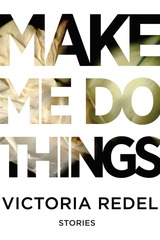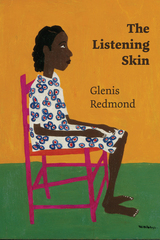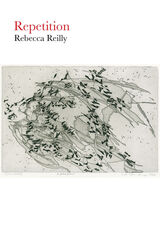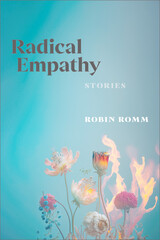8 have author last names that start with R have author last names that start with R


Rewriting Eden, Victoria Redel interrogates the idea of paradise within the historical context of borders, exile, and diaspora that brought us to the present global migration crisis. Drawing from a long family history of flight and refuge, the poems in Paradise interweave religion and myth, personal lore and nation-building, borders actual and imagined. They ask: What if what we fell from was never, actually, grace? What is a boundary, really? Redel navigates geopolitical perimeters while also questioning the border between the living and the dead and delineating the migrations aging women make in their bodies and lives. With stark lyricism and unflinching attention, Paradise considers how a legacy of trauma shapes imagination and asks readers to see the threads that tie contemporary catastrophes to the exigencies and flight paths that made us.

Rewriting Eden, Victoria Redel interrogates the idea of paradise within the historical context of borders, exile, and diaspora that brought us to the present global migration crisis. Drawing from a long family history of flight and refuge, the poems in Paradise interweave religion and myth, personal lore and nation-building, borders actual and imagined. They ask: What if what we fell from was never, actually, grace? What is a boundary, really? Redel navigates geopolitical perimeters while also questioning the border between the living and the dead and delineating the migrations aging women make in their bodies and lives. With stark lyricism and unflinching attention, Paradise considers how a legacy of trauma shapes imagination and asks readers to see the threads that tie contemporary catastrophes to the exigencies and flight paths that made us.




Varied in subject but tethered by their interest in prospecting the border between self and other, Robin Romm’s short stories relay the inner lives of contemporary women: the young mother who wonders if her marriage has become complacent while fantasizing about her ineffectual contractor, the expecting single mom who begins an affair with a man whose girlfriend is pregnant by the same donor’s sperm while trying to figure out how she will afford motherhood, both financially and emotionally. In the book’s eponymous story, a college student sells her “Ivy League” eggs to a celebrity, and — though she first ridicules the elitist marketing and overt capitalism of the reproductive economy — her roommate encourages her to see this act as not one defined by commerce but by “radical empathy,” “the longing for children elemental, like the desire for sight.”
A testament to her keen vision, Romm’s critique of “radical empathy” salvages authentic meaning from the self-serving banalities of therapy speak. We have children because we want them; we foist life on them, though we don’t understand our own lives, hoping their existence will provide a cipher to ours. And yet — it is radical, isn’t it, to love the future so much that we manifest new beings from nothing but our aging bodies that we imagine the next generation’s memories and collapse time into a perpetual present? Romm’s stories perch on the ledge of the moment, vibrant as photographs where “we’re all of us smeary with movement, with what is about to occur.”

READERS
Browse our collection.
PUBLISHERS
See BiblioVault's publisher services.
STUDENT SERVICES
Files for college accessibility offices.
UChicago Accessibility Resources
home | accessibility | search | about | contact us
BiblioVault ® 2001 - 2024
The University of Chicago Press









